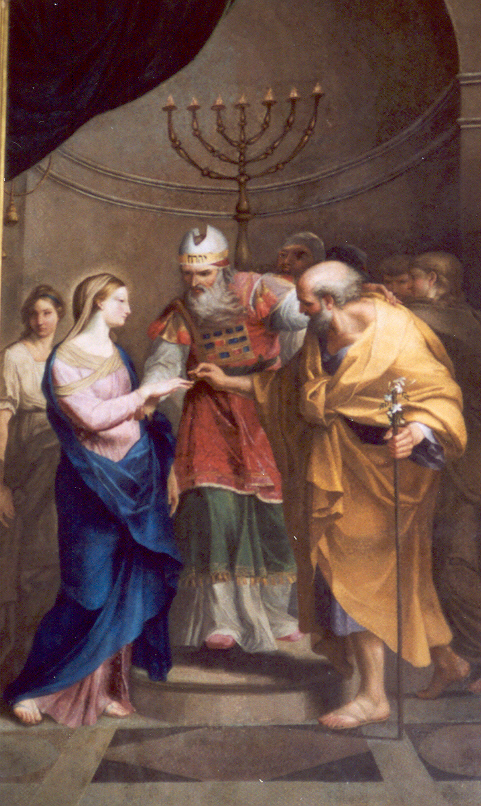
It is believed that today's solemnity dates back to the 900s. It has been celebrated on this day since about the 15th century. It's one of my favorite solemnities because it honors a saint who is often forgotten but whose role was so essential in the plan of salvation. It's also a very nice break from our Lenten penances, so much so that the Church does not permit fasting and abstinence from meat on solemnities. The Preface Prayer of today's Mass, which we pray right before we pray the Sanctus in the Mass refers to St. Joseph as that just man, that wise and loyal servant. This evening, we should ponder what the justice or righteousness of St. Joseph really meant.

Generically, being a just person means being a person who gives to others what they are due. That may mean acts of charity in some cases and acts of punishment in other cases. It may mean something as simple as paying back money owed on a loan or something as complex as being honest on our tax forms. The virtue of justice was very much a part of St. Joseph's life. He was totally devoted to the will of the Father because He knew that he owed God this obedience because God always deserves to be obeyed and loved. Our Gospel from St. Matthew tells us that upon learning that Mary had conceived without a husband, Joseph, since he was a righteous man, yet unwilling to expose her to shame, decided to divorce her quietly. This could be understood in two ways:
1. First, it could mean that Joseph, adherent to Jewish Law, was permitted to divorce a woman to whom he was betrothed, who presumably committed the sin of adultery. Joseph knew that Mary conceived without his help and so was guilty of adultery, since the couple was already betrothed. Jewish betrothal, in our terms, meant a commitment more serious than engagement but a period of waiting before the couple lived together as husband and wife. So, Joseph wanted to escape the shame of taking a wife who had presumably cheated on him. At the same time, he also didn't want Mary's pregnancy to be known publicly since she would be subject to stoning - the punishment for adultery. This is the traditional understanding of this passage.
2. Another way this could be understood, a position held by some of the Fathers and Doctors of the Church, including St. Thomas Aquinas puts it this way: as an observant Jew who knew the Scriptures, Joseph knew that the Savior would be conceived by a virgin. Knowing this, he wanted to divorce Mary quietly, not because he was ignorant of the Virginal Conception and suspected Mary of adultery, but because he already knew that Mary had conceived by the power of the Holy Spirit and felt unworthy to live in her presence. It's the same posture that St. Peter would take when Jesus called him to be the head of the Apostles. Peter said, "Depart from me, Lord, for I am a sinful man."
• Attesting to this way of understanding Joseph's sense of unworthiness, St. Bridget, in apparitions approved by the Church attributes these words to our Lady, "After I gave my consent to God's messenger, Joseph, seeing my womb enlarged by the power of the Holy Spirit, was exceedingly afraid. It is not that he suspected me of anything untoward, but simply that he remembered the words of the prophets when they foretold the birth of the Son of God from a virgin, and reckoned himself unworthy of serving such a mother, until the angel in a dream commanded him not to be afraid to serve me with charity."
If we are to understand Joseph's desire to divorce Mary quietly in these terms, we see that his righteousness or sense of justice was not grounded in a blind respect for Jewish Law, but rather a feeling of unworthiness to be the foster father of Jesus and the husband of Mary. Justice is connected to the virtue of humility - a recognition and acceptance of the truth about a situation. Joseph did not deem himself worthy.
Today we give thanks for the example of humility and justice that St. Joseph teaches. May we learn from his complete devotion to our Lord and our Lady and may the hidden character of his life teach us that great things are accomplished for God in the most ordinary and simple tasks of our daily life.
Praised be Jesus Christ. Now and forever!